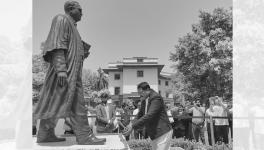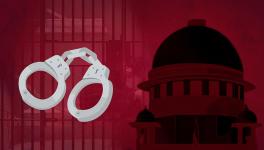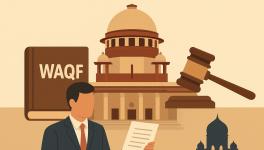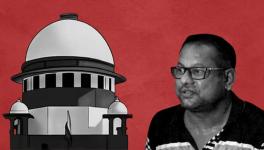Delhi HC Ruling on Non-Disclosure of Password of Devices by Accused is a Welcome Safeguard
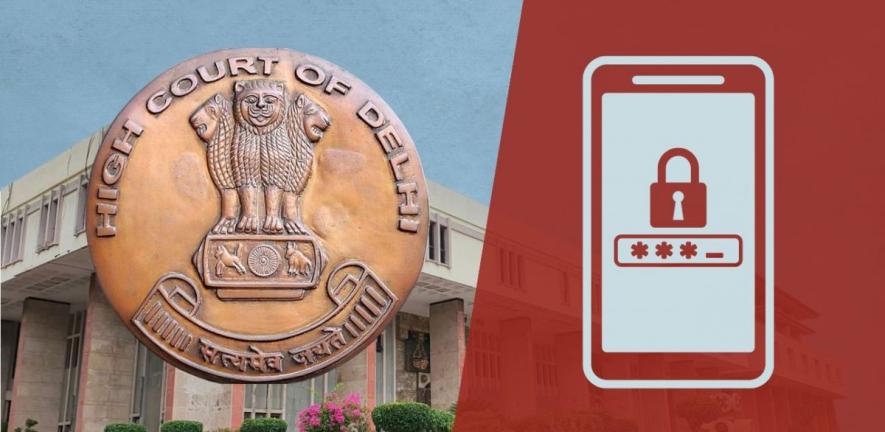
Taking a rights-based approach, the Delhi High Court has ruled that an accused person cannot be forced to disclose passwords in digital evidence, but is this in consonance with previous decisions by high courts?
—
In Delhi’s high court, where justice takes flight,
Accused shielded from a coercive plight.
Passwords to digital realms remain unseen,
No compelled revelation in the trial’s sheen.
High court echoes, in fairness it confides,
In the realm of justice, where truth abides.
In a progressive step, the Delhi High Court has ruled that an accused person cannot be coerced to disclose passwords in regard to digital evidence in a pending trial.
This decision in Sanket Bhadresh Modi versus Central Bureau of Investigation & Anr fosters a correct position of law that protects the constitutional as well as human rights of an individual, especially the right to privacy.
The judgment is in contrast to the ruling of the Karnataka High Court in Virendra Khanna versus State of Karnataka, where the court’s conclusion was incorrect and the legal position was misstated by wrongly reading the Kathi Kalu Oghad case.
It was also contrary to the Kerala High Court’s ruling in P. Gopalkrishnan versus State of Kerala, where the court held that the prosecution is entitled to access the data of the accused person’s mobile phone and doing so does not violate the constitutional right envisaged under Article 20(3) of the Indian Constitution.
Notably, after the Karnataka High Court’s ruling, a sessions court in Delhi has already ruled to the contrary.
Interestingly, a batch of petitions are pending before the Supreme Court with a prayer to pass the guidelines regulating the seizure of electronic devices.
If an accused person is compelled to reveal the password of their electronic devices, it is violative of both the aforementioned rights that are also fundamental human rights of individuals.
It will be interesting to see how the Supreme Court deals with this trilogy of decisions rendered by the high courts, specifically on a similar subject matter while disposing of the said batch of petitions.
Judicial trajectory of an accused’s rights
Article 20(3) of the Indian Constitution provides the right against self-incrimination and the right to privacy under Article 21.
If an accused person is compelled to reveal the password of their electronic devices, it is violative of both the aforementioned rights that are also fundamental human rights of individuals.
The Supreme Court in Selvi & Ors. versus State of Karnataka held that forcing the accused to go through techniques such as a lie detector test and narco-analysis amounts to testimonial compulsion and violates their right against self-incrimination.
Further, once the agency gets access to a device, it enables complete access to the accused person’s personal life which is violative of Article 21.
Whether or not unrestricted access to an accused person’s device can form a valid exception to the right to privacy is an interesting idea, however, Abhinav Sekhri argues that it does not. Thus, it squarely violates the right to privacy of the accused.
Article 14(3)(g) of the International Covenant on Civil and Political Rights also protects those accused of self-incrimination along with the protection Section 161(2) of the Code of Criminal Procedure (CrPC).
In Sanket Bhadresh, the Delhi High Court noted that the “Central Bureau of Investigation cannot expect anyone who is an accused, to sing in a tune which is music to their ears” as the accused was protected under Article 20(3) of the Constitution.
Citing Santosh versus State of Maharashtra, the Supreme Court held that merely because the accused did not confess, it could not be said that the applicant was not cooperating with the investigation.
Notably, the right to maintain silence exists under Article 20(3) and also Section 161(2) of CrPC, thus, an accused cannot be compelled to disclose his password which would amount to self-incriminatory testimony.
However, it is interesting to note that the court refrained from commenting on anything regarding the provisions of the recently enacted Criminal Procedure (Identification) Act, 2022.
The Act specifically includes ‘measurement’ as different physical evidence as well as finger impressions, photographs and biological samples. However, it does not include the passwords therein.
In Sanket Bhadresh, the Delhi High Court noted that the “Central Bureau of Investigation cannot expect anyone who is an accused, to sing in a tune which is music to their ears” as the accused was protected under Article 20(3) of the Constitution.
Resultantly, fingerprints used to unlock electronic devices would not be protected under Article 20(3). Interestingly, the decision by the Delhi sessions court in Central Bureau of Investigation versus Mahesh Kumar Sharma & Anr mentioned this distinction in its ruling but the Delhi High Court has not even touched this facet in Sanket Bhadresh. Nevertheless, the court made no ruling on this as it was not a direct question that was on the record.
The act of unlocking a device, whether by biometrics or a password, is a testimonial act. Giving a password is testimonial in and of itself, but unlocking gadgets with biometrics also conveys something about the relationship between the user and the device, making it testimonial in nature.
Further, opening a gadget may implicate someone directly or indirectly. According to the Selvi ratio, the accused must determine whether or not the information being shared during an investigation is incriminating in any scenario.
Given that Article 20(3) satisfies both of its requirements, an argument puts forward that an accused person cannot be forced to unlock an electronic device because the right against self-incrimination protects them and additionally, unlocking a device can be incriminating due to the data stored in devices that eventually amounts to self-incrimination.
Thus, the Delhi High Court’s ruling to not compel the accused to reveal a device’s password lies in tandem with Selvi’s ratio and constitutional scheme.
Foreign jurisprudence
The United Kingdom’s Court of Appeal in R. versus S & Anr ruled that the court can compel the accused to reveal the password if needed during an investigation.
In contrast to the UK’s jurisprudence, the US Constitution incorporates self-incrimination protection in the Fifth Amendment.
On the aspect of compelling the accused to reveal the password, the US Supreme Court in Riley versus California observed that the accused cannot be coerced by the police to reveal their password.
Likewise, in the Grand Jury Subpoena, the court upheld the decision in Riley but with a caveat that if the investigative agency reasonably believes that the electronic device contains incriminatory evidence, then the password can be recovered from the accused.
What amounts to reasonable belief is an intricate conundrum that safeguards or violates the rights of the individual.
However, notably in Fisher versus United States, the court ruled that if an agency is aware of the existence of incriminating evidence, then the Order to produce the same would not trigger the protection envisaged under the Fifth Amendment.
It is vital to mention the doctrine of foregone conclusion, which allows the government to compel the revelation or production of a document as an exception to the Fifth Amendment right.
Opening a gadget may implicate someone directly or indirectly. According to the Selvi ratio, the accused must determine whether or not the information being shared during an investigation is incriminating in any scenario.
The doctrine of foregone conclusion is applicable in the US, however, it is not the position in India.
The jurisprudence on the revelation of passwords is still developing even in advanced jurisprudences such as the US as there exists a catena of contrary judgments regarding the applicability of this doctrine as an exception to the bar against revelation of passwords.
India’s position remains ambiguous as the Karnataka and Kerala high courts’ decisions are different from the instant ruling of the Delhi High Court in Sanket Bhadresh. The latter is a right-based, reformative, progressive and correct position of law and the Supreme Court’s verdict on the batch of petitions will provide some clarity on the subject matter.
On the aspect of compelling the accused to reveal the password, the US Supreme Court in Riley versus California observed that the accused cannot be coerced by the police to reveal their password.
Notably, Kerala High Court in T.G. Mohandas versus State of Kerala also ruled somewhat in line with the decision of Delhi High Court as it was held that a person cannot be accused of producing their mobile phones for investigation as it is violative of Article 20(3) of the Constitution.
Conclusion
The Delhi High Court gave a balanced decision in Sanket Bhadresh and tried to maintain an equilibrium between the facets of investigation and constitutional rights.
The issues emanating from previous decisions require an equilibrium approach as on one side, imperatives of investigation are at stake while on the flip side, imperative fundamental rights such as the right to privacy and right to life are in question.
It is suggested that until proper guidelines are framed by legislatures, the judiciary must adopt a subjective approach by scaffolding the rights of the accused. Doing so will guarantee accurate evidence, discourage the police from pressuring suspects to provide testimony, and promote independent and trustworthy investigative techniques.
Bharat Chugh aptly quoted Stephen’s History of Criminal Law in his piece: “An abolition of this privilege (right against self-incrimination) would be an incentive for those in charge of enforcement of law.”
The jurisprudence on the revelation of passwords is still developing even in advanced jurisprudences such as the US as there exists a catena of contrary judgments regarding the applicability of this doctrine as an exception to the bar against revelation of passwords.
It is imperative to highlight the importance of Article 20(3) as penned down by Justice Iyer in Nandini Satpathy versus Dani (P.L.) & Anr, “Article 20(3) is a human Article, a guarantee of dignity and integrity and of inviolability of the person and refusal to convert an adversary system into an inquisitorial scheme in the antagonistic ante-chamber of a police station.”
Shelal Lodhi Rajput is a final year student reading law at SLS, Pune. His area of interest includes dispute resolution, human rights law and international law.
Get the latest reports & analysis with people's perspective on Protests, movements & deep analytical videos, discussions of the current affairs in your Telegram app. Subscribe to NewsClick's Telegram channel & get Real-Time updates on stories, as they get published on our website.










